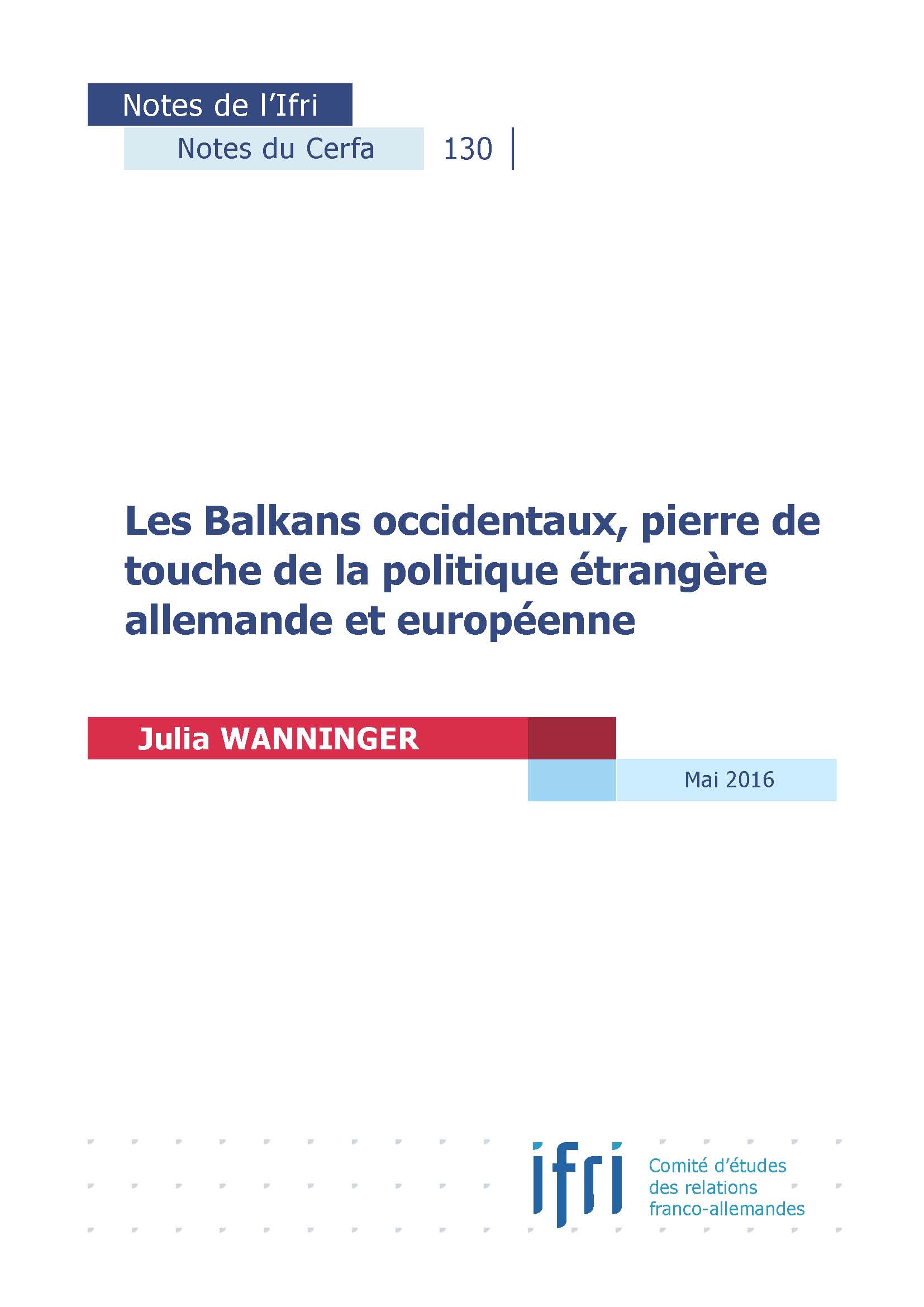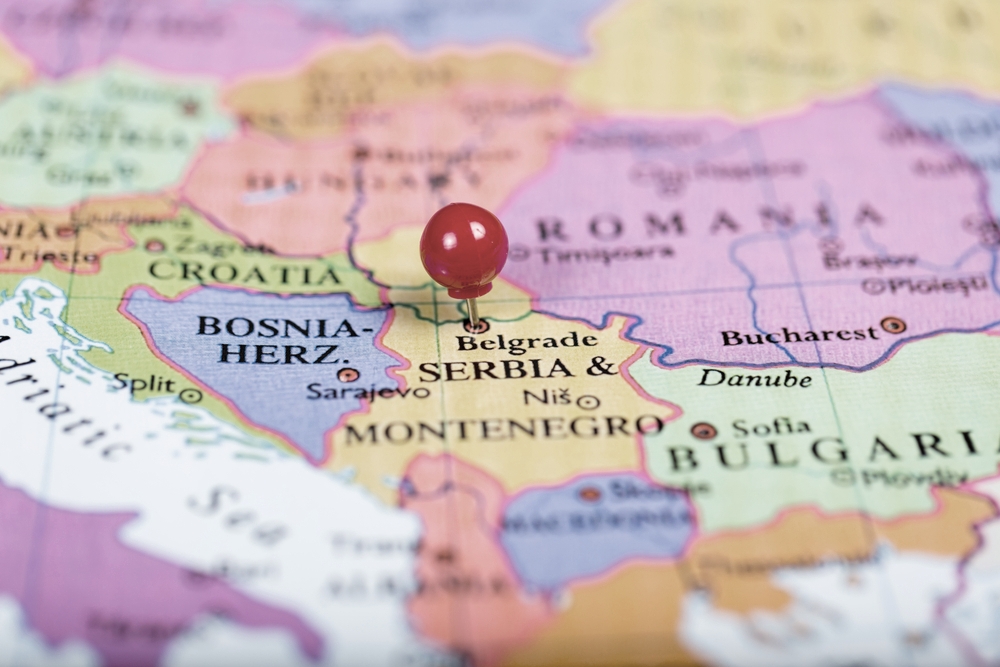The Western Balkans : a touchstone for German and European foreign policy
Papers
|
Date de publication
Référence taxonomie collections
Notes du Cerfa
Image de couverture de la publication

Accroche
Germany’s policy towards the Western Balkans is marked by continuous commitment that put different emphasis in different phases : reconstruction, stabilisation, consolidation of rule of law and market economy as well as member state-building.
Image principale

Corps analyses
The Western Balkans play a central role for German foreign policy just as for EU foreign policy. The Kosovo conflict in 1999 confronted German foreign policy practitioners with a decision between "never again war" and "never again Auschwitz". At the same time the Western Balkans remind of the EU’s promise to share peace, prosperity and solidarity with its South-eastern European neighbors, too. Although the topic of migration currently dominates bilateral relations with the Western Balkans, German foreign policy can mainly be understood as a contribution to a committed EU enlargement policy.
Since autumn 2013, the federal government of CDU/CSU and SPD has set new priorities in its policy towards the Western Balkans, e.g. the British-German initiative for Bosnia Herzegovina in November 2014 or the annual Western Balkans Summit that have been taking place since August 2014. In both cases the federal government has opted for joint initiatives with European partners or the continuation of its initiatives by other EU member states or the EU institutions. France will host the Western Balkans Summiton July 4, 2016.
The Western Balkans Summits bear the potential to increase confidence into their European future among the population of the six Western Balkans countries. They also promote regional cooperation and contribute towards anchoring the necessary mechanisms for coordination and cooperation between EU member states. At the same time, they bear the risk of diverting attention of political elites away from lengthy rule of law-related reforms to mid-term projects. Germany and France should advocate the EU’s further active support for a continuation of democratic and market economy reforms in the Western Balkans.
Julia Wanninger is Office manager and Research assistant of Knut Fleckenstein (MEP).
This content is available in French and German.




